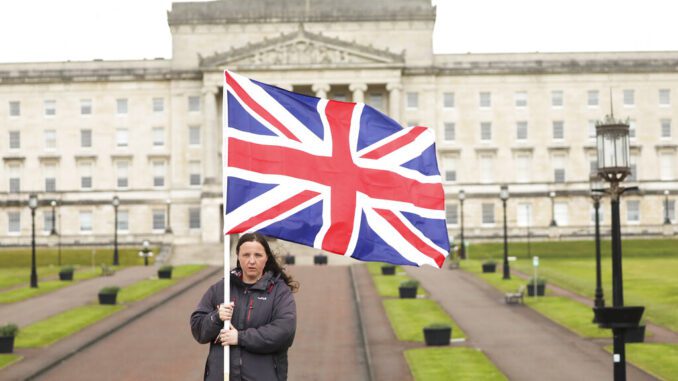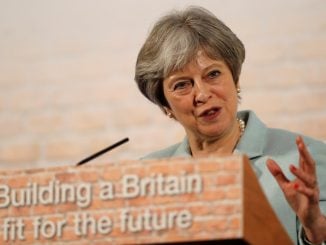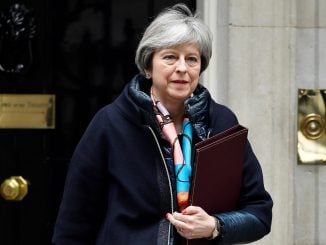
BRUSSELS — European Union Parliament committees overwhelmingly backed the new trade deal between the 27-nation bloc and former member Britain Thursday, pushing it onward to the full legislature for a final vote expected later this month.
The EU and the United Kingdom clinched the deal on Christmas Eve last year but it still needed the consent of the EU parliament, leaving bilateral trade to proceed on a provisional basis until the deal is finalized.
The committees approved the deal by 108-1, with 4 abstentions. Since the provisional application of the deal on Jan. 1, both sides have been bickering over the Brexit divorce that went into effect at the end of January last year, and specifically the customs arrangements between Britain and Northern Ireland.
In an attempt to ease those tensions, the vice president of the EU executive arm and the United Kingdom’s Brexit minister will hold talks late Thursday on Northern Ireland trade rules.
The meeting between European Commission Vice President Maros Sefcovic and U.K. Brexit minister David Frost will take place a month after the EU started legal action against its former member country, arguing that it had not respected the conditions of their Brexit agreement and violated international law.
The two sides are trying to find common ground on trade rules in Northern Ireland, where Britain’s exit from the EU has unsettled a delicate political balance.
Northern Ireland is part of the U.K. but remained part of the EU’s single market for goods after Brexit to avoid checks at the territory’s border with EU member Ireland. An open Irish border helped underpin the peace process that ended decades of sectarian violence, allowing people in Northern Ireland to feel at home in both Ireland and the U.K.
Unionists say an alternative post-Brexit arrangement the British government and the EU worked out has amounted to the creation of a border between Northern Ireland and the rest of the U.K.
In March, London decided to unilaterally extend a grace period until October on checks for goods moving between Britain and Northern Ireland, a decision that led the EU to issue a formal notice to its former member. The U.K had been given one month to respond.
Some EU legislators are threatening to hold back the parliamentary vote that would legally seal the trade deal until they receive further assurances from London.
“Before scheduling the plenary vote, we look forward to receiving assurances of good faith on the proper implementation of the Withdrawal Agreement,” said MEP Andreas Schieder, a rapporteur on the EU-UK deal.



